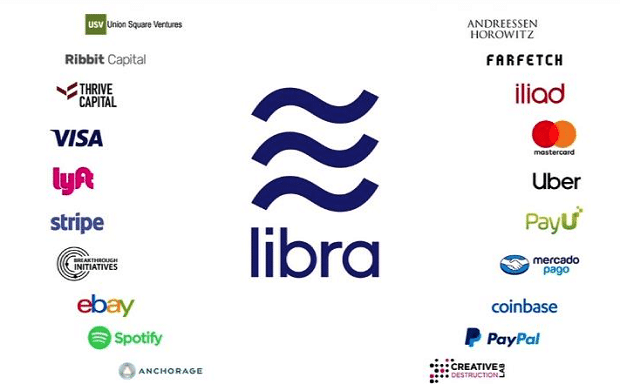
The cryptocurrency, called Libra, forms part of a wider Calibra digital wallet package under development that will be available as a standalone app before mid-2020.
It will initially only allow payments between users, via smartphones or other devices, but Libra will be “open source” – meaning it can be included in existing and other digital wallets.
Facebook says its Calibra services will be available via Facebook Messenger, WhatsApp and a standalone app
Facebook said Libra was to be included on trading exchanges – allowing for conversion to physical currency.
However, the US tech firm said it should be seen as a medium for payments rather than a Bitcoin-style cryptocurrency – largely unregulated and vulnerable to wild fluctuations in value.
It explained that the value would be underpinned by real assets, including bank deposits and short-term government securities.
These would be managed by a string of big firms, under a not-for-profit umbrella organisation, with the aim of ensuring stability.
It said the Libra Association, to be based in Switzerland, was aiming to attract 100, largely multi-national, entities by the time of the launch.
Each firm must pay $10m (£8m) to get on board. There are currently 28 signed up, including Mastercard, Spotify, Paypal, Uber and Vodafone.

Facebook said it would have “no special role” in governing Libra amid questions surrounding global regulatory oversight.
Facebook said if the project progresses as expected, services available via the Calibra wallet would eventually be opened up to allow things such as payments for goods and services.
It also moved to ease concerns about data collection – following a string of scandals – by saying account information would not be shared with Facebook except for “limited cases” where the data may be shared “to keep people safe, comply with the law, and provide basic functionality to the people who use Calibra”.
Stefano Parisse, group director of product and services at Vodafone, said: “As a Founding Member of the Libra Network, Vodafone will extend its commitment to digital and financial inclusion by supporting the creation of a new global currency and encouraging a wide range of innovative financial services to be developed through its open-source platform.
“This has the potential to be truly transformative and will benefit those who have never used, or are struggling to access, financial services around the world.”
